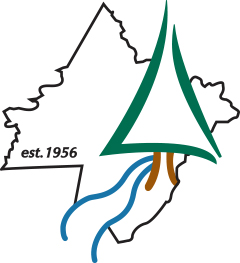News
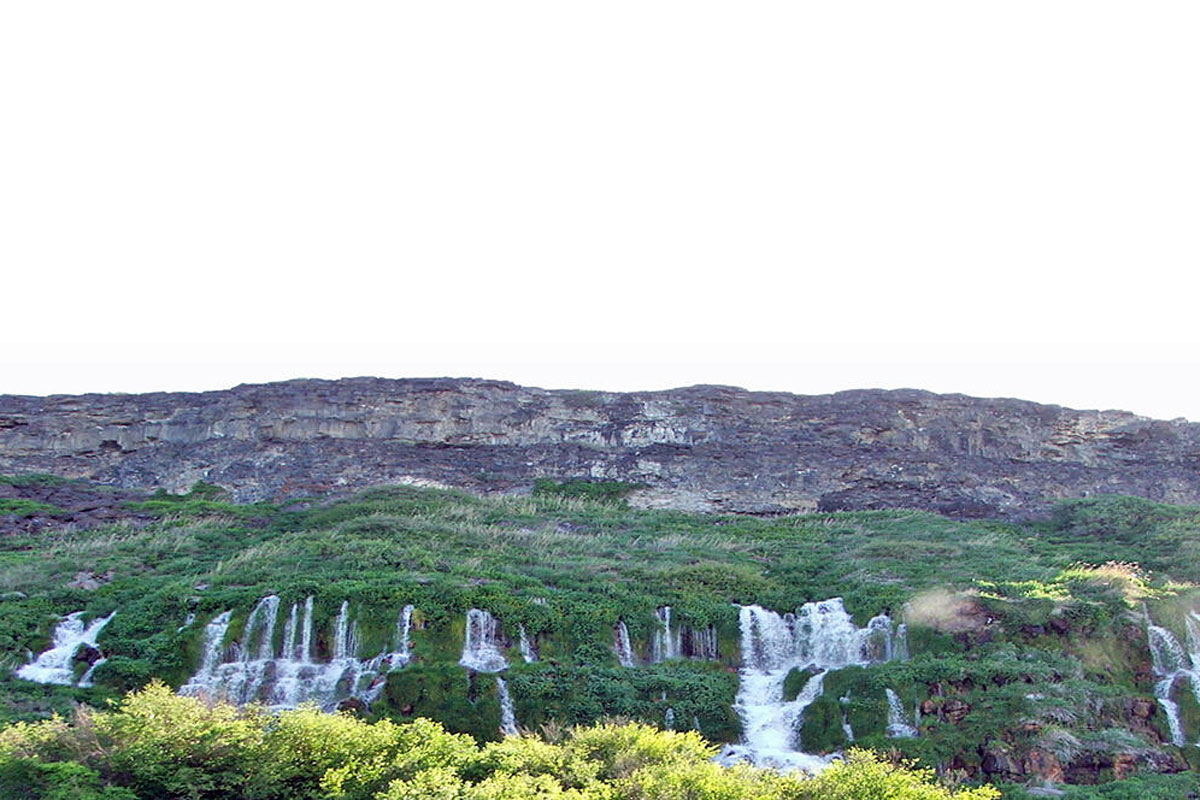
Dig Deep: The Connection Between Groundwater & Geology
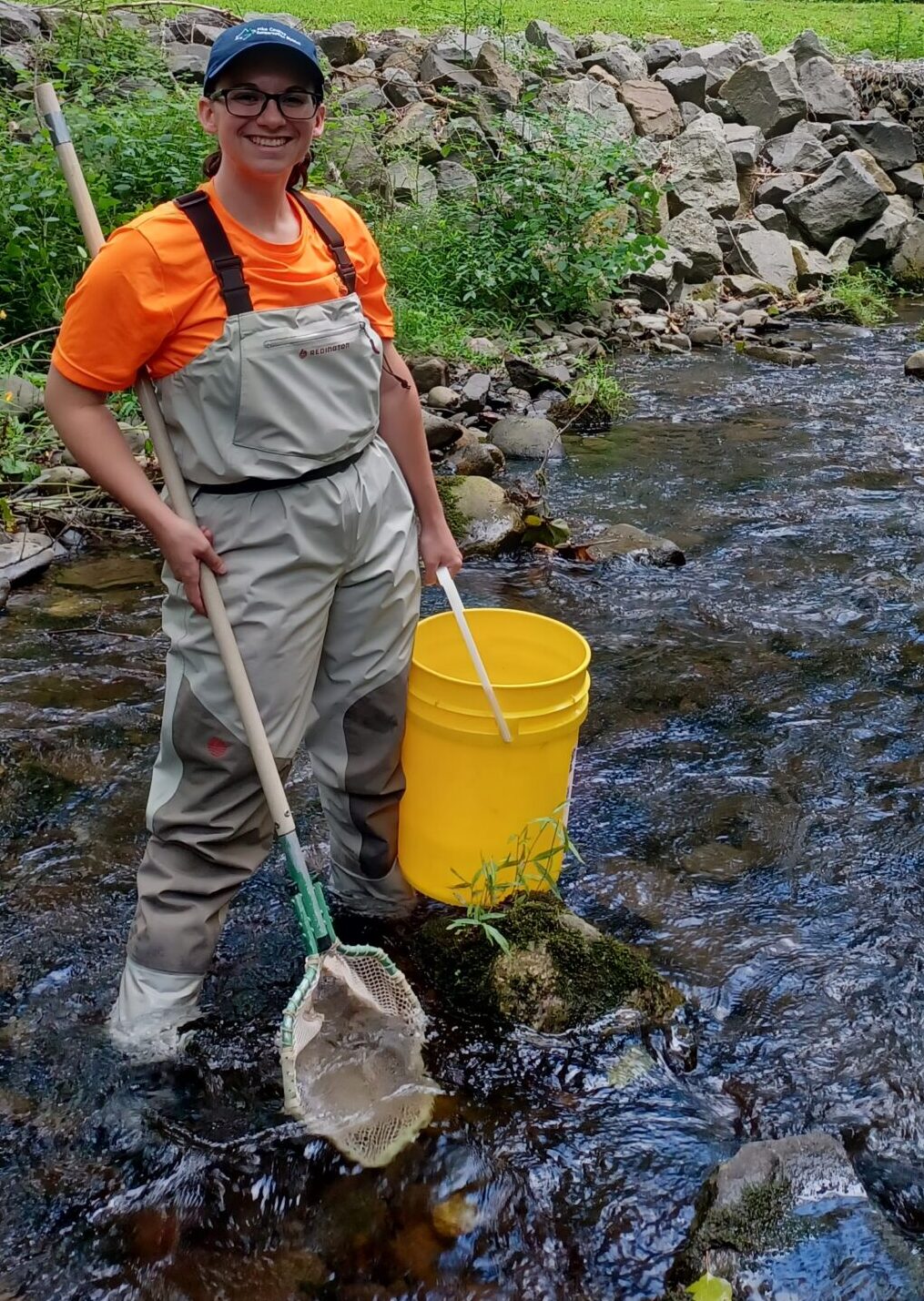
By PCCD Watershed Specialist Rachael Marques
As the Watershed Specialist for Pike County Conservation District (the District), I frequently work with groundwater for educational and scientific purposes. Groundwater is water found under the ground and plays a critical role in Pike County. All residents and visitors rely on groundwater for our everyday use in homes and businesses within the county.
This unseen resource is affected largely by another invisible factor: geology. The geologic makeup of the area impacts the way our groundwater flows, recharges, and more!
One of the key effects our geology has on our groundwater is the recharge rate. Recharge is the process of water making its way back underground to refill the aquifer for future use. When we take water out of the ground to use in our homes and businesses, it is important that the water is replaced so that we maintain a usable amount of water in our aquifers. An aquifer is the area underground where the groundwater is stored. To recharge the aquifer, the water must percolate down through all the cracks and cervices underground until it reaches the aquifer, much like how water percolates through coffee grounds until it reaches your coffee pot!
Recharging the aquifer may or may not be an easy task depending on the geology of the area. Different soil and rock types have different levels of permeability. This means that each type of rock and soil will allow a different amount of water through it to reach the aquifer. Some, such as gravel, will allow plenty of water through, while others, like clay, allow almost no water through.
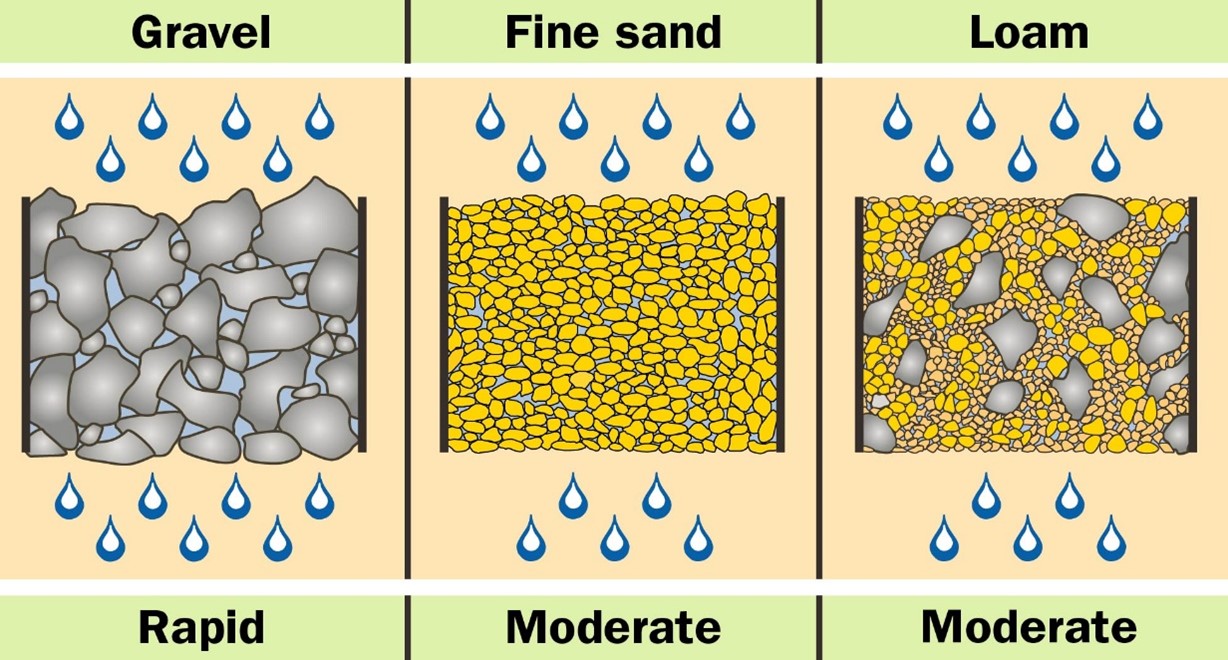
Different rates of water flow through different soil materials, photo from Ontario.ca
Pike County has two main types of geology in our aquifers. The first type, which is in most of the county, is the fractured rock aquifer. The geology of the aquifer is made mainly of fractures, cracks, and breaks in the rock underground. The second type of aquifer we see is the glacial till aquifer. These are found in the Delaware River area of Pike County and are made up mostly of sand, gravel, and other glacial material. In the studies done by the United States Geological Survey (USGS) in partnership with the District, we can see that wells in these areas tend to behave differently than those in the fractured rock aquifers. From the data we have, the groundwater level in the glacial areas seems to fluctuate much more than the rest of the county!
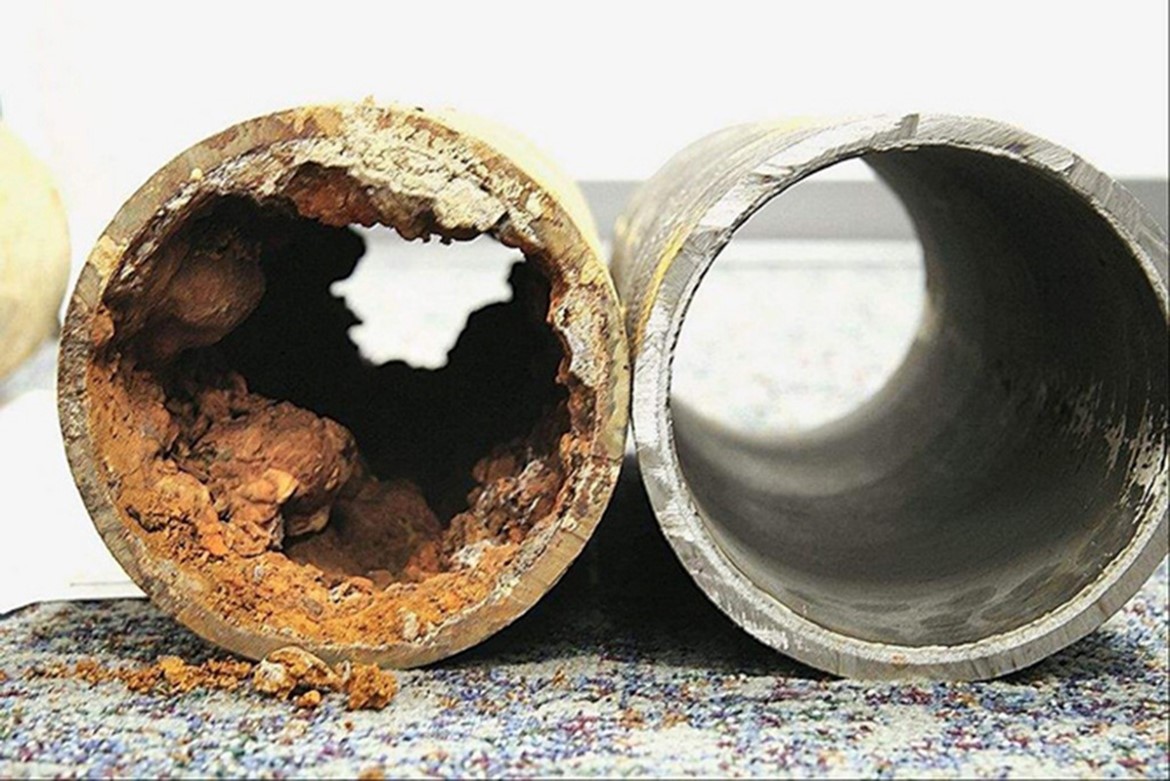
Example of mineral buildup in pipes, photo from santafewater.net
Another way that geology and groundwater are connected is through the quality of your water. Have you ever seen rusty colored or white stains in your sinks and other plumbing? This could be due to iron or calcium in your groundwater! As water is travelling through the aquifer, minerals can dissolve into the water and travel into your home. Much of the water chemistry in your groundwater is affected by the underlying materials and rocks in your aquifer. In fact, many of the quality issues we see in our groundwater are naturally occurring! For example, areas with a lot of limestone geology may tend to have a higher calcium in their groundwater than other areas. These issues are usually only aesthetic, meaning they generally aren’t harmful to human health. They can cause hard water staining on plumbing and calcium buildup in your infrastructure such as furnaces.
If you would like to learn more about the water levels and study in Pike County, please visit the Pennsylvania Groundwater Watch. Other groundwater information for Pike County and reports from USGS can be found on our website here. If you would like to get your water tested for minerals or other parameters, be sure to use a PA Department of Environmental Protection certified lab. For any other questions, reach out to Rachael Marques at 570-226-8220 or rmarques@pikepa.org.
